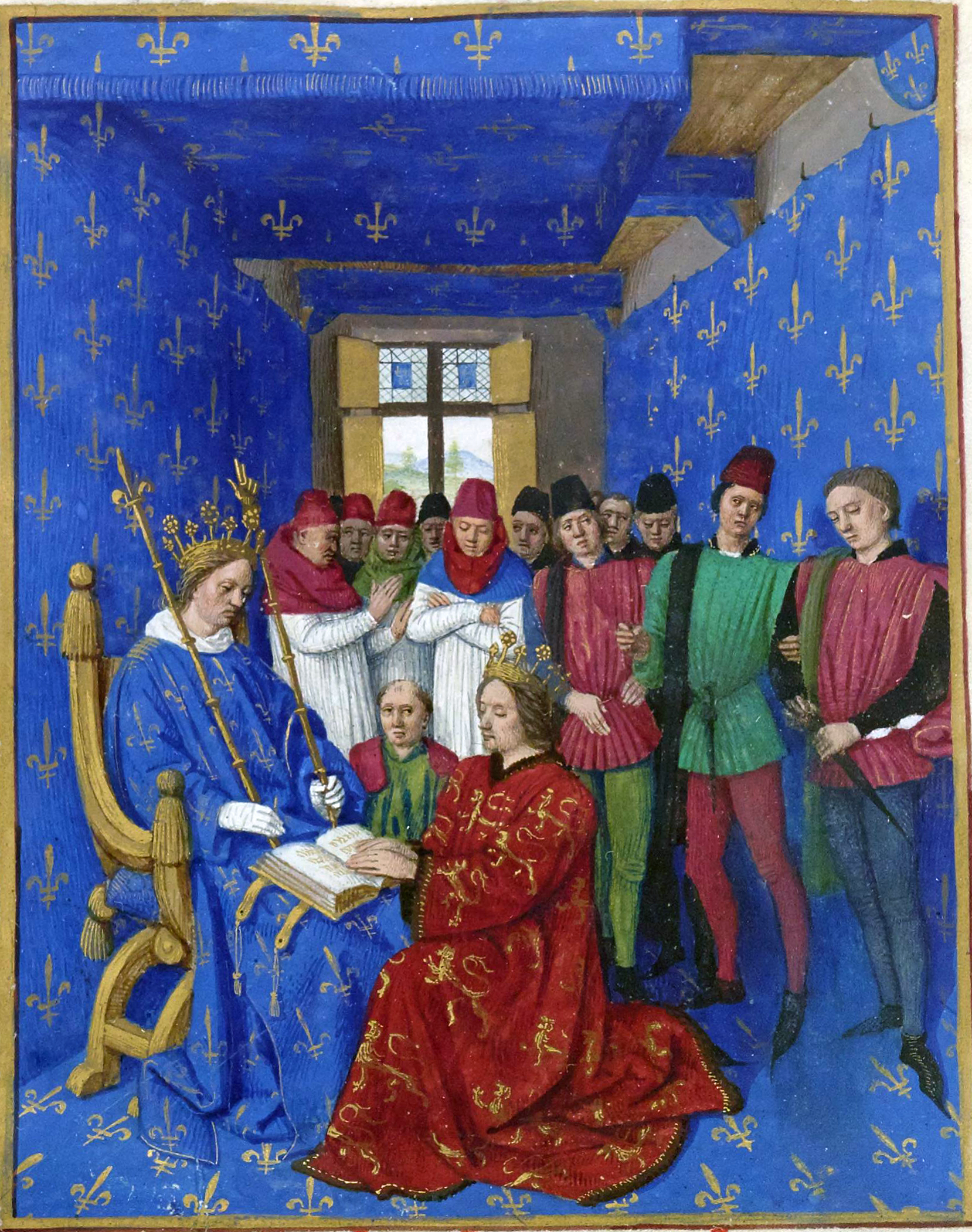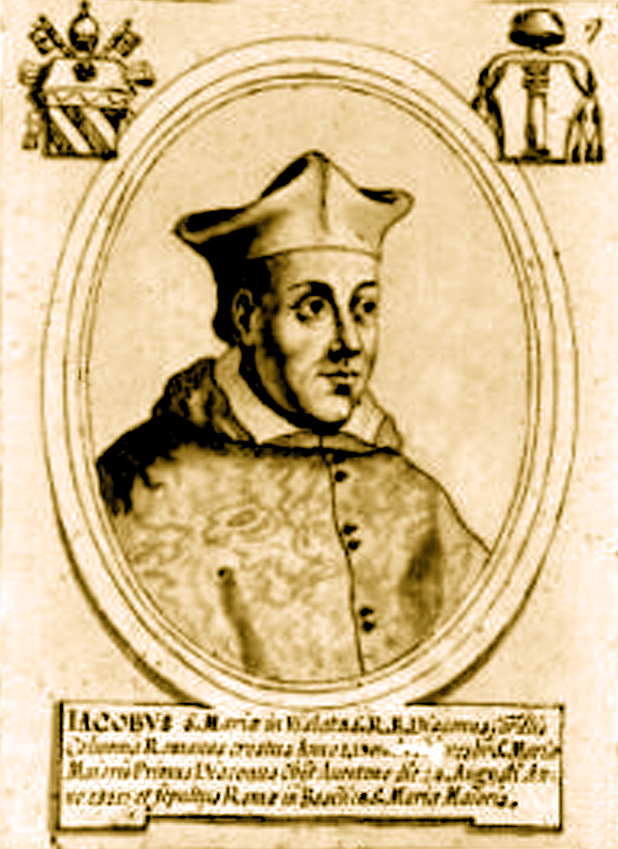|
Ubertin Of Casale
Ubertino of Casale (1259 – c. 1329) was an Italian Franciscan and one of the leaders (together with Michael of Cesena) of the Spirituals, the stricter branch of the Franciscan order. Life Ubertino was born in Casale Monferrato. He assumed the Franciscan habit in a convent of the province of Genoa in 1273, and was sent to Paris to continue his studies, where he remained nine years, after which he returned to Italy. In 1285 he visited the sanctuaries of Rome, and thence proceeded to Greccio, near Rieti, to see John of Parma, who was considered as the patriarch of the Spiritual Friars. Afterwards he settled in Tuscany and in 1287, at Florence, where he came under the influence of Pierre-Jean Olivi. He held a lectorship at Santa Croce, Florence, but abandoned it after a few years to dedicate himself to preaching, especially at Florence. Being a man of genius, but of an eccentric and restless character, he soon became the leader of the Spirituals in Tuscany. [...More Info...] [...Related Items...] OR: [Wikipedia] [Google] [Baidu] |
Pope Boniface VIII
Pope Boniface VIII ( la, Bonifatius PP. VIII; born Benedetto Caetani, c. 1230 – 11 October 1303) was the head of the Catholic Church and ruler of the Papal States from 24 December 1294 to his death in 1303. The Caetani, Caetani family was of baronial origin, with connections to the papacy. He succeeded Pope Celestine V, who had papal resignation, abdicated from the papal throne. Boniface spent his early career abroad in diplomatic roles. Boniface VIII put forward some of the strongest claims of any pope to temporal as well as spiritual power. He involved himself often with foreign affairs, including in France, Sicily, Italy and the First War of Scottish Independence. These views, and his chronic intervention in "temporal" affairs, led to many bitter quarrels with Albert I of Germany, Philip IV of France, and Dante Alighieri, who placed the pope in the Eighth Circle of Hell in his ''Divine Comedy'', among the simony, simoniacs. Boniface systematized canon law (Catholic Church), ... [...More Info...] [...Related Items...] OR: [Wikipedia] [Google] [Baidu] |
Excommunication
Excommunication is an institutional act of religious censure used to end or at least regulate the communion of a member of a congregation with other members of the religious institution who are in normal communion with each other. The purpose of the institutional act is to deprive, suspend, or limit membership in a religious community or to restrict certain rights within it, in particular, those of being in communion with other members of the congregation, and of receiving the sacraments. It is practiced by all of the ancient churches (such as the Catholic Church, Oriental Orthodox churches and the Eastern Orthodox churches) as well as by other Christian denominations, but it is also used more generally to refer to similar types of institutional religious exclusionary practices and shunning among other religious groups. The Amish have also been known to excommunicate members that were either seen or known for breaking rules, or questioning the church, a practice known as shun ... [...More Info...] [...Related Items...] OR: [Wikipedia] [Google] [Baidu] |
Gembloux
Gembloux (; wa, Djiblou; nl, Gembloers, ) is a city and municipality of Wallonia located in the province of Namur, Belgium. On 1 January 2006 the municipality had 21,964 inhabitants. The total area is 95.86 km², yielding a population density of 229 inhabitants per km². The mayor, who was elected on 8 October 2006, is Benoît Dispa. The municipality consists of the following districts: Beuzet, Bossière, Bothey, Corroy-le-Château, Ernage, Gembloux, Grand-Leez, Grand-Manil, Isnes, Lonzée, Mazy, and Sauvenière. This city is well known for its Agricultural University and for its cutlery. The university is housed in the historical Abbey of Gembloux, which dates from the tenth century. Gembloux's belfry is a UNESCO World Heritage Site, as part of the Belfries of Belgium and France site, in recognition of its architecture and testimony to the rise in municipal power in the area. History The central city grew around the Gembloux Abbey, founded in the tenth century ... [...More Info...] [...Related Items...] OR: [Wikipedia] [Google] [Baidu] |
Benedictine
, image = Medalla San Benito.PNG , caption = Design on the obverse side of the Saint Benedict Medal , abbreviation = OSB , formation = , motto = (English: 'Pray and Work') , founder = Benedict of Nursia , founding_location = Subiaco Abbey , type = Catholic religious order , headquarters = Sant'Anselmo all'Aventino , num_members = 6,802 (3,419 priests) as of 2020 , leader_title = Abbot Primate , leader_name = Gregory Polan, OSB , main_organ = Benedictine Confederation , parent_organization = Catholic Church , website = The Benedictines, officially the Order of Saint Benedict ( la, Ordo Sancti Benedicti, abbreviated as OSB), are a monastic religious order of the Catholic Church following the Rule of Saint Benedict. They are also sometimes called the Black Monks, in reference to the colour of their religious habits. They ... [...More Info...] [...Related Items...] OR: [Wikipedia] [Google] [Baidu] |
Pope John XXII
Pope John XXII ( la, Ioannes PP. XXII; 1244 – 4 December 1334), born Jacques Duèze (or d'Euse), was head of the Catholic Church from 7 August 1316 to his death in December 1334. He was the second and longest-reigning Avignon Pope, elected by the Conclave of Cardinals, which was assembled in Lyon through the work of King Louis X's brother Philip, the Count of Poitiers. Like his predecessor, Clement V, Pope John centralized power and income in the Papacy and lived a princely life in Avignon. John excommunicated the enemies of Edward II of England, while warning Edward of a possible reassessment of the papal grant of Ireland. He opposed the political policies of Louis IV of Bavaria as Holy Roman Emperor, which prompted Louis to invade Italy and set up an antipope, Nicholas V. John opposed the Franciscan understanding of the poverty of Christ and his apostles passing multiple papal bulls to enforce his views. This led William of Ockham to write against unlimited papal power. Fol ... [...More Info...] [...Related Items...] OR: [Wikipedia] [Google] [Baidu] |
Giacomo Colonna (cardinal)
Giacomo or Jacopo Colonna (1250 – 14 August 1318) was a member of a powerful noble family in Rome, and an Italian cardinal. Life Giacomo Colonna was the second son of Oddone and Margherita Orsini Colonna, and as such, a member of two of the most powerful and influential families in Rome. He was an older brother of Blessed Margherita Colonna. His father died when he was still a boy. His mother, a pious woman, was sister to Matteo Rosso Orsini. When she died, about 1570, Giacomo and his older brother, Giovanni, looked after their younger sister. Colonna studied law at the University of Bologna. When Margherita reached her late teens there was talk of arranging an appropriate marriage for her. However, she preferred to retire to religious life. She was initially opposed by her brother Giovanni, but supported by Giacomo, a Franciscan friar. At the consistory of 12 March 1278, his first cousin, Pope Nicholas III created him a cardinal, naming him cardinal deacon of Santa Maria ... [...More Info...] [...Related Items...] OR: [Wikipedia] [Google] [Baidu] |
Avignon
Avignon (, ; ; oc, Avinhon, label=Provençal dialect, Provençal or , ; la, Avenio) is the Prefectures in France, prefecture of the Vaucluse Departments of France, department in the Provence-Alpes-Côte d'Azur Regions of France, region of Southeastern France. Located on the left bank of the river Rhône, the Communes of France, commune had a population of 93,671 as of the census results of 2017, with about 16,000 (estimate from Avignon's municipal services) living in the ancient town centre enclosed by its Walls of Avignon, medieval walls. It is Functional area (France), France's 35th largest metropolitan area according to Institut national de la statistique et des études économiques, INSEE with 336,135 inhabitants (2019), and France's 13th largest urban unit with 458,828 inhabitants (2019). Its urban area was the fastest-growing in France from 1999 until 2010 with an increase of 76% of its population and an area increase of 136%. The Communauté d'agglomération du Grand Av ... [...More Info...] [...Related Items...] OR: [Wikipedia] [Google] [Baidu] |
France
France (), officially the French Republic ( ), is a country primarily located in Western Europe. It also comprises of Overseas France, overseas regions and territories in the Americas and the Atlantic Ocean, Atlantic, Pacific Ocean, Pacific and Indian Oceans. Its Metropolitan France, metropolitan area extends from the Rhine to the Atlantic Ocean and from the Mediterranean Sea to the English Channel and the North Sea; overseas territories include French Guiana in South America, Saint Pierre and Miquelon in the North Atlantic, the French West Indies, and many islands in Oceania and the Indian Ocean. Due to its several coastal territories, France has the largest exclusive economic zone in the world. France borders Belgium, Luxembourg, Germany, Switzerland, Monaco, Italy, Andorra, and Spain in continental Europe, as well as the Kingdom of the Netherlands, Netherlands, Suriname, and Brazil in the Americas via its overseas territories in French Guiana and Saint Martin (island), ... [...More Info...] [...Related Items...] OR: [Wikipedia] [Google] [Baidu] |
Germany
Germany,, officially the Federal Republic of Germany, is a country in Central Europe. It is the second most populous country in Europe after Russia, and the most populous member state of the European Union. Germany is situated between the Baltic and North seas to the north, and the Alps to the south; it covers an area of , with a population of almost 84 million within its 16 constituent states. Germany borders Denmark to the north, Poland and the Czech Republic to the east, Austria and Switzerland to the south, and France, Luxembourg, Belgium, and the Netherlands to the west. The nation's capital and most populous city is Berlin and its financial centre is Frankfurt; the largest urban area is the Ruhr. Various Germanic tribes have inhabited the northern parts of modern Germany since classical antiquity. A region named Germania was documented before AD 100. In 962, the Kingdom of Germany formed the bulk of the Holy Roman Empire. During the 16th ce ... [...More Info...] [...Related Items...] OR: [Wikipedia] [Google] [Baidu] |
Napoleone Orsini Frangipani
Napoleone Orsini (1263 – 24 March 1342) was a Roman Cardinal. His ecclesiastical career lasted 57 years, 54 of them as a cardinal, and included six conclaves. Born in Rome to Rinaldo Orsini, Lord of Monterotondo and of Marino, son of Matteo Rosso Orsini 'il Grande'; and Ocilenda, perhaps the daughter of Stefano II Conti, perhaps of a member of the house of Boveschi. Rinaldo was a brother of Pope Nicholas III and of Cardinal Giordano Orsini. Napoleone took holy orders in 1285 and was named a papal sub-chaplain by Honorius IV. He is attested as Papal Chaplain on February 18, 1286. He rose quickly in the ecclesiastical hierarchy, and in a Consistory held by Pope Nicholas IV on 16 May 1288, he was appointed a Cardinal Deacon and assigned the Deaconry of S. Adriano. During the pontificate of Boniface VIII his gift for diplomacy was put to wide use and he was named legate to Spoleto and Ancona on 27 May 1300. In this capacity, in 1301, he retook the city of Gubbio, which h ... [...More Info...] [...Related Items...] OR: [Wikipedia] [Google] [Baidu] |



